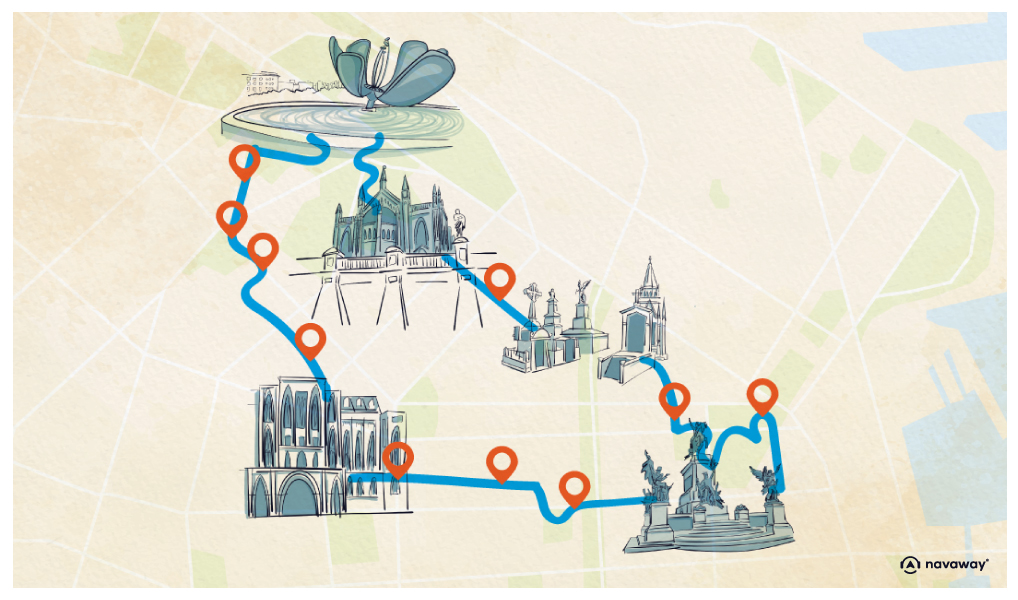
The Falklands War
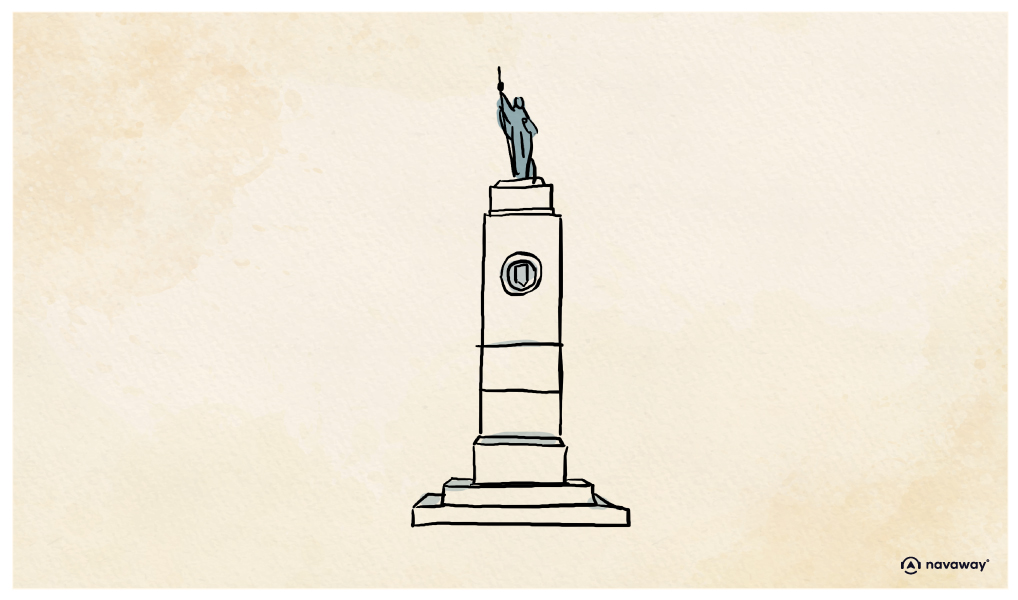
This point of interest is available as audio on the tour: Visit Buenos Aires, A stroll through the city’s beautiful neighborhoods
You’re standing in front of a very important war memorial for Argentina, in remembrance of the 649 soldiers who were sent to their deaths by the British in the Falklands War. Their names are engraved on the stones in front of you. Chances are you don’t know where the Falkland Islands are, unless you’ve had a particular interest in the topic. They’re islands off the southeast coast of Argentina. The French call them Malouines, because in the 1700s, sailors from Saint-Malo, known as Malouins, traded quite a bit with these islands. In Spanish, they are known as Malvinas. During your trip, you’re sure to see signs saying “Las Malvinas son Argentinas!” aka “The Malvinas are Argentine”. It’s clear that this dispute is far from over for Argentina. It’s a complex story, and one that speaks volumes about the country’s history. For those of you who like to get to the bottom of things, I’ll go on to give you some background. Make yourselves comfortable and have a listen. For the rest of you, you can just skip this part and take a stroll around the park – I’ll meet you at the exit! Okay, so to really understand what happened, we must keep two things in mind: the time when it all went down and the events taking place in Argentina and Britain when the war broke out and the Falkland Islands were discovered. And I say “discovered” because they were uninhabited before the Europeans arrived. The Spanish were therefore the first to arrive there. But at the time, they were more interested in the gold they could bring back from Peru, so they didn’t stick around much. The islands were nothing special after all; they were uninhabited for a reason. But with time came better boats and better trade routes. And so, suddenly, these little islands that were of no interest to anyone became strategically important. The French came and built a fort, only to be kicked out by the Spanish. Then came the English, who claimed the islands as their own, saying they’d discovered them first and built a camp there. But they too were booted out. This became known as the Falklands Crisis of 1770, when three kingdoms fought for control of the islands, nearly sparking a war between Great Britain and Spain. In the end, they made a deal. And it could all have ended there, but after the War of Independence, Argentina, no longer under the yoke of Spain, felt that if the Spanish crown no longer had rights over its lands, then the same should apply to its islands. And so, based on geography, Argentina too claimed sovereignty over the Falkland Islands. The Argentinians even settled there, but the British quickly forced them out and maintained control of the islands. Yet in Argentina, you’ll still hear them say that the Falklands are theirs. So much for the pre-war setting. Let’s talk about 1982. On both sides, we have leaders who aren’t well-liked by the masses. Margaret Thatcher isn’t exactly popular in England, and General Galtieri has brought with him a bloody dictatorship. What’s more, when he came to power, Galtieri promised to get the Falklands back. To divert attention away from the troubles of his reign, he went to war with England, unexpectedly stirring up a patriotic frenzy. On April 2, 1982, the Argentine army invaded the islands, home to just 3,000 people. Most British people didn’t even know where Argentina was, let alone the Falklands, but Thatcher saw an opportunity to look good and grow in popularity. She wasn’t about to blow it, so, the day after the invasion, she sent 30,000 men and the famous English fleet in all its splendor to fight back. This truly came as a surprise to the international community, which was not expecting an armed conflict of this scale right at the height of the Cold War. Argentina had the support of Panama, Venezuela, Peru and the Soviet Union. The United Kingdom was backed by the United States, Chile and France, with the European Union imposing economic sanctions against Argentina. The war lasted but 74 days. Naturally, the British forces crushed the Argentine army in no time, for they had more soldiers and better supplies. It was but a losing battle, and a report declassified in 2012 revealed that the military regime had sent soldiers who had not finished their training. Plus, they had come from warmer regions, unprepared for the freezing cold temperatures of the islands, and they were malnourished, humiliated and even tortured by their own superior officers. What we have here is a pretend war, a crude calculated political ploy with legal proceedings yet to reach a conclusion as of 2022.

Discover other tours to visit Buenos Aires

Discover Buenos Aires with app
An interactive guide through the most beautiful streets, squares, and districts
21 fun audioguides full of historical facts, anecdotes, and legends
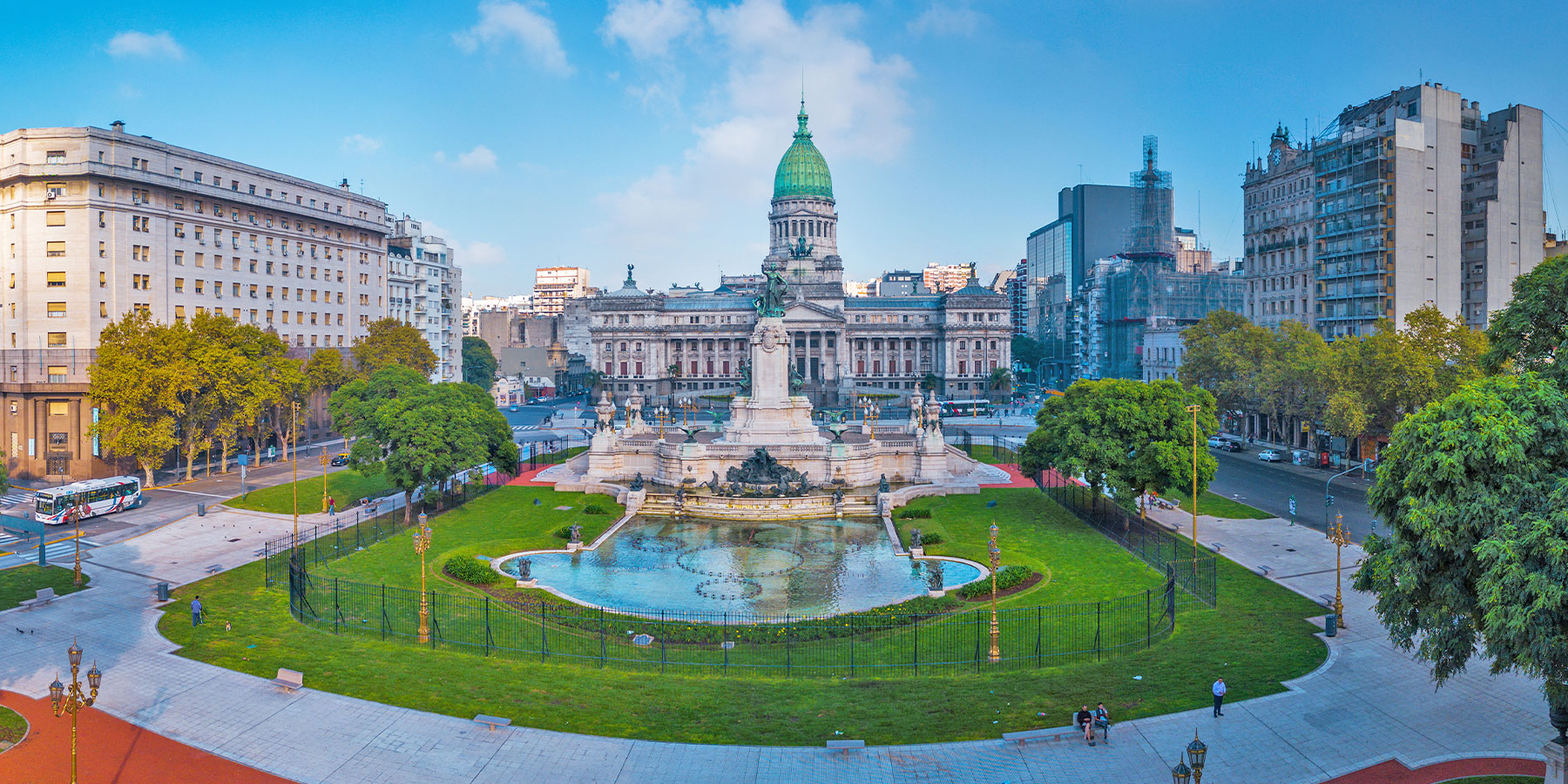
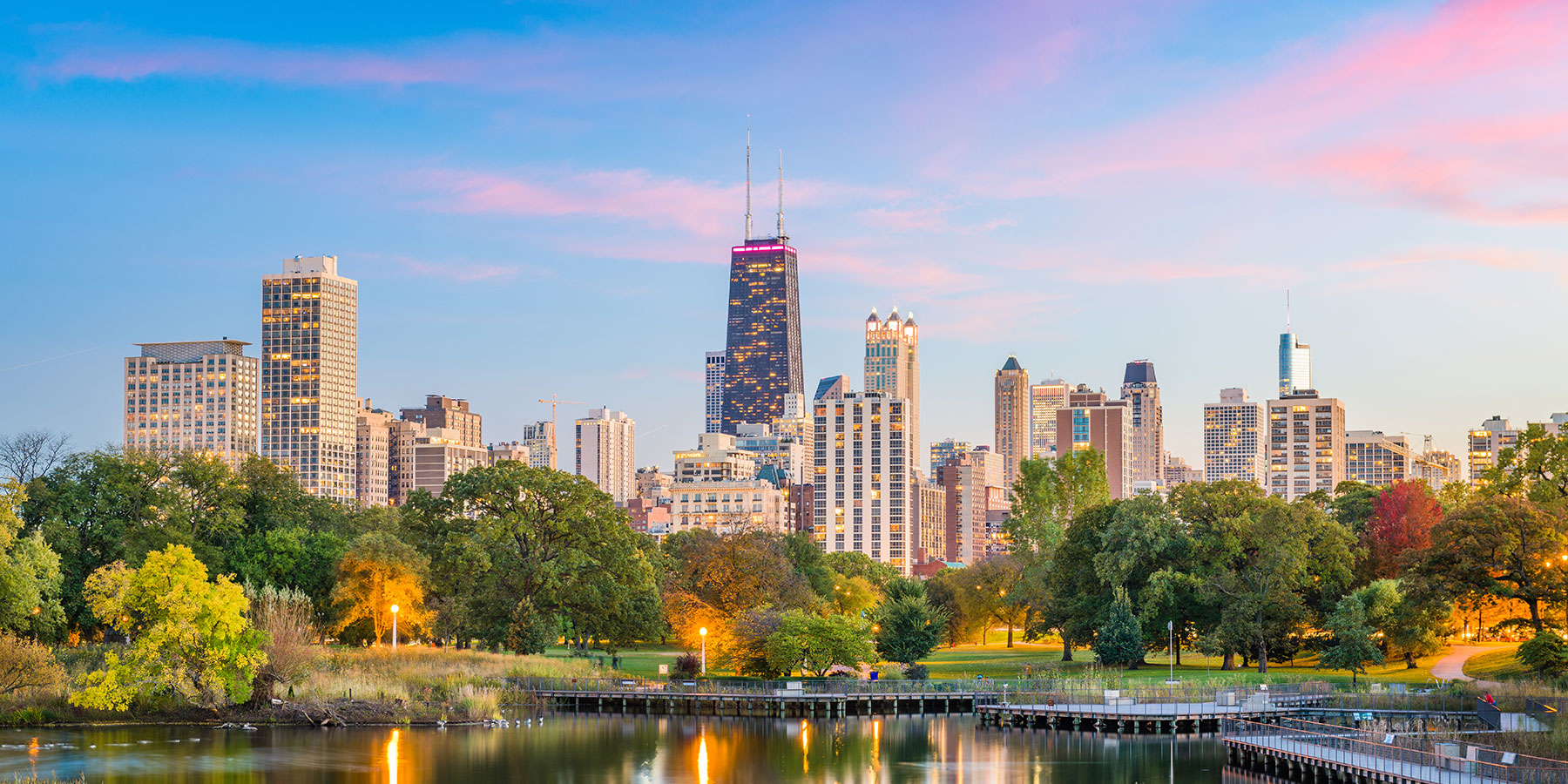
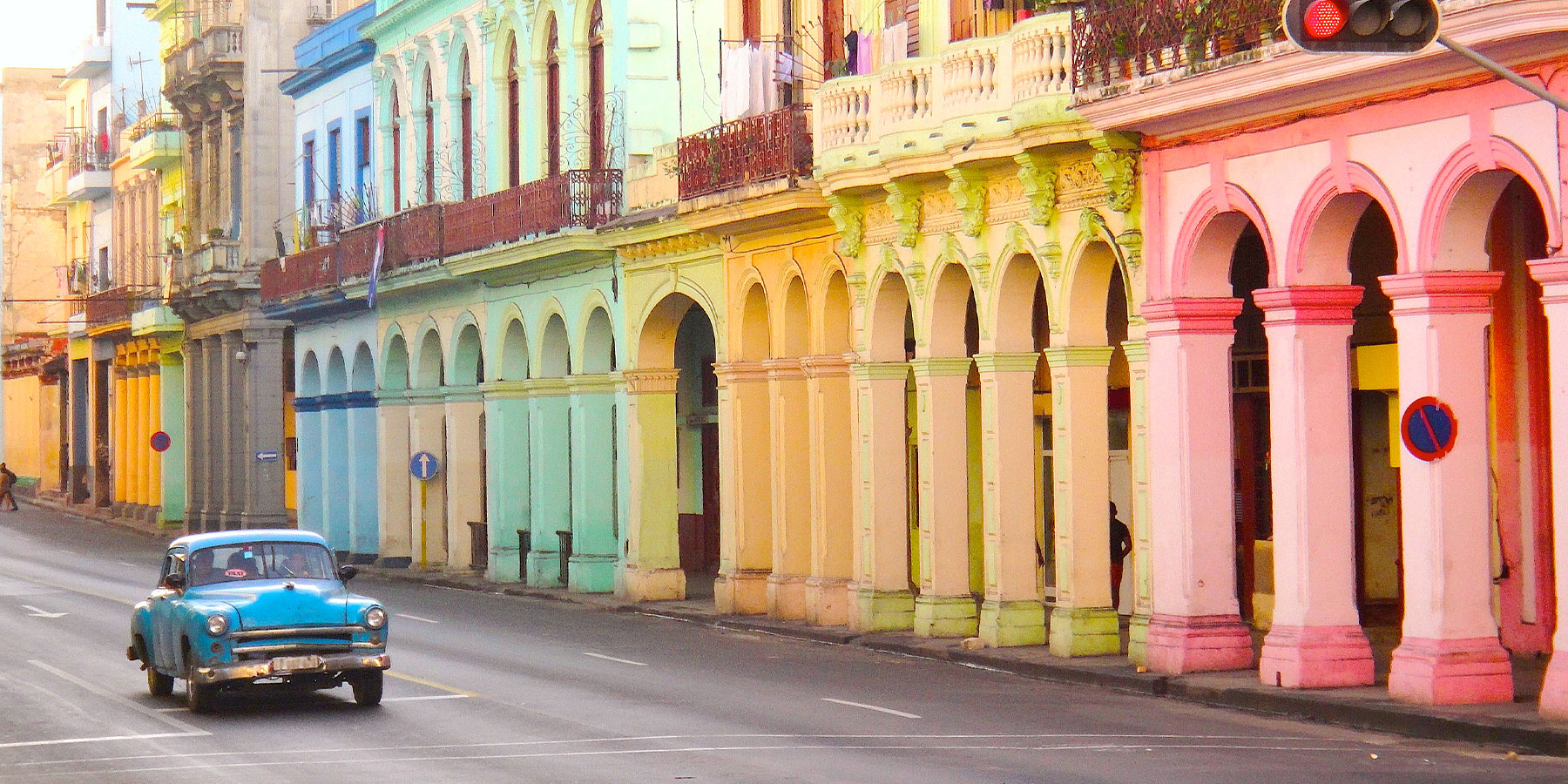
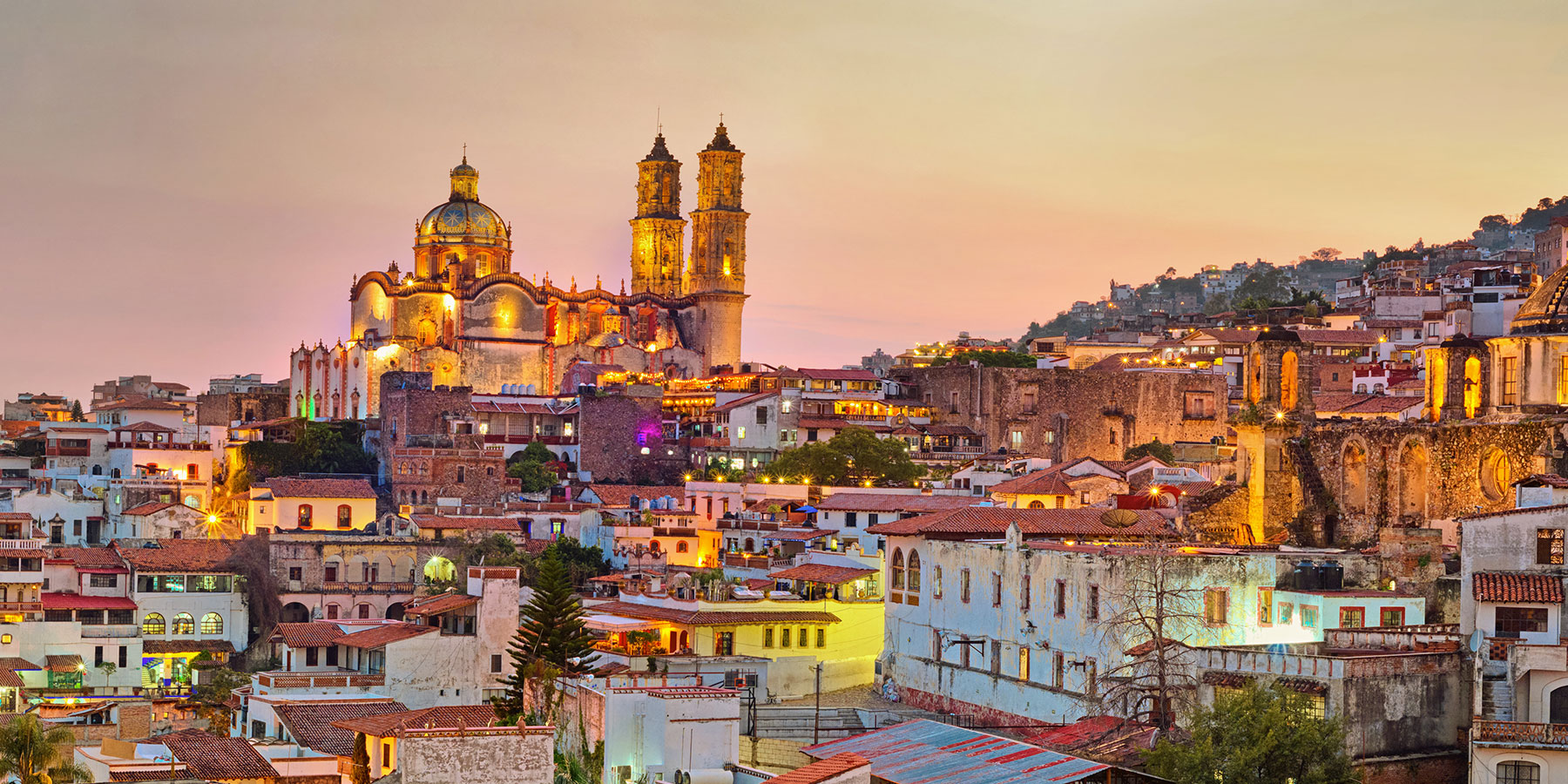


Comments